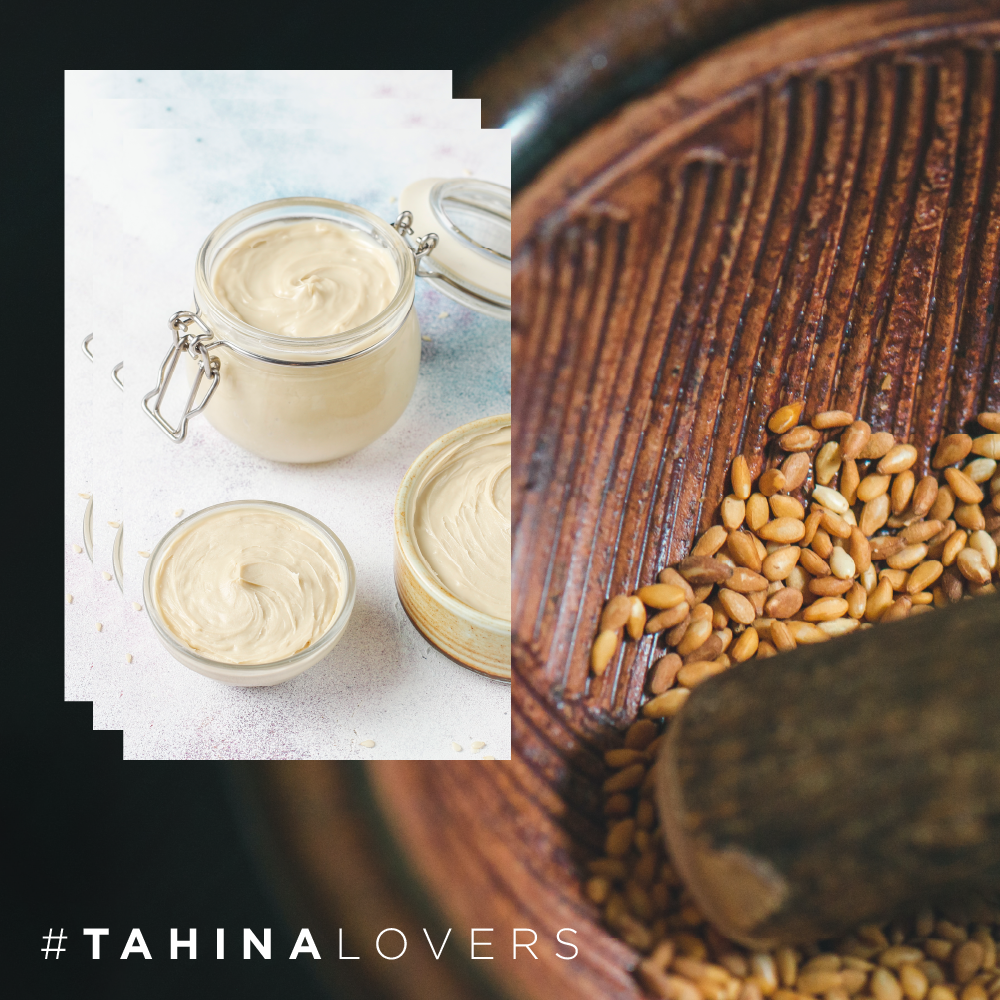Tahina, or tahini, is a Middle Eastern condiment made from ground sesame seeds that has been a staple of Middle Eastern and Mediterranean cuisines for thousands of years. The exact origins of Tahini are not clear, but it is believed to have been first made in ancient Babylon (present-day Iraq) around 4,000 years ago. The word "Tahina" comes from the Arabic word 'tahn' meaning 'ground.' Most western countries use the Greek spelling, Tahini, which is the Americanized word for Tahina.
Over time, Tahini spread to other parts of the Middle East, where it was used in a variety of dishes, including hummus, baba ghanoush, falafel, and halva (a sweet dessert made from Tahini and honey).
Tahini also played an important role in ancient Greek and Roman cuisine. The Greek philosopher, Aristotle, mentioned Tahini in his writings, and the Roman naturalist, Pliny the Elder, described Tahini as a food made from sesame seeds that were highly valued for its nutritional properties.
In the 20th century, Tahini became more widely known in the Western world as Middle Eastern and Mediterranean cuisines gained popularity. Today, Tahini is widely available in grocery stores around the world, and it continues to be a popular ingredient in a variety of dishes, from dips and spreads to desserts and baked goods.



